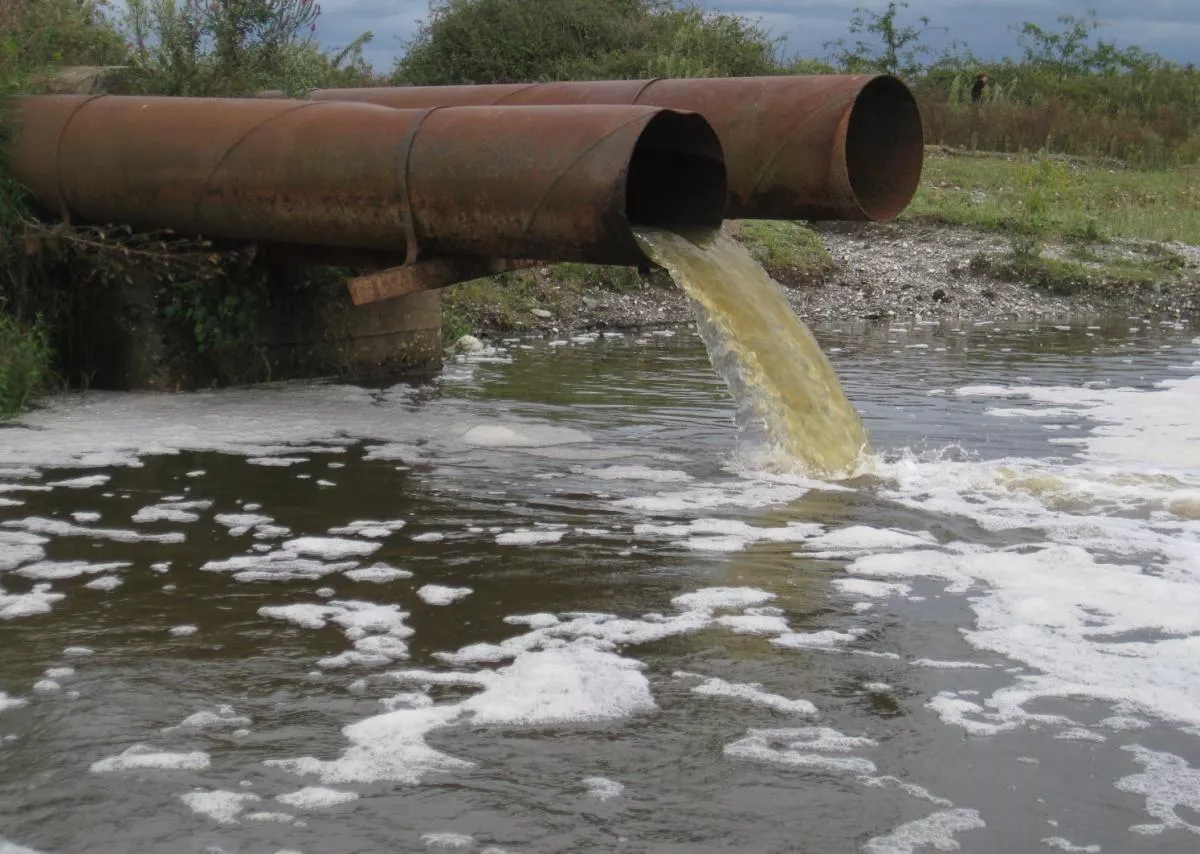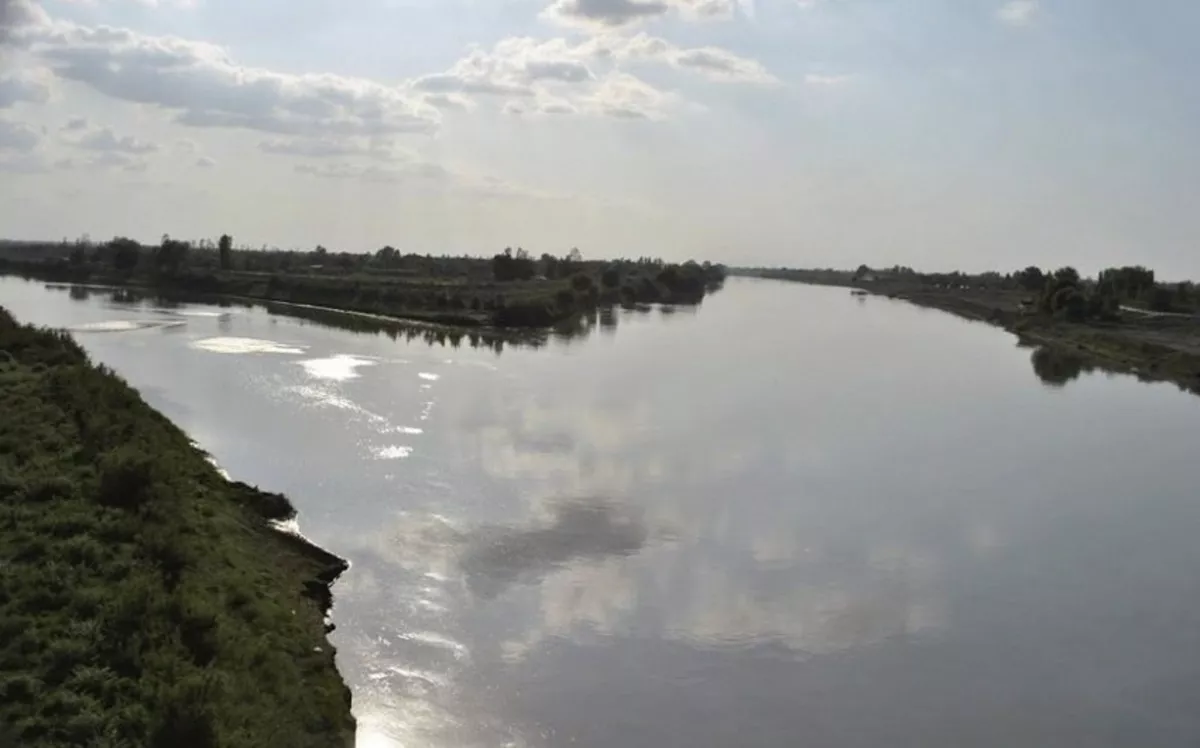Veolia’s role in environmental terrorism: Lessons from Colombia and threat to Azerbaijan Facts and investigation by Global Witness
According to a new investigation by Global Witness, the company Veolia is injecting toxic pollutants into protected wetlands in Colombia. The French multinational company is putting people's health at risk, including causing congenital defects, by pumping toxins from a large landfill into specially protected natural areas.
Global Witness obtained a series of secretly filmed videos from a Veolia-managed site, showing employees using electric pumps to discharge untreated liquid pollutants known as leachate. Samples of sediment were then collected in September 2024 from locations downstream from the leachate discharge shown in the video, and analyses were ordered.
The results showed high concentrations of heavy metals, including mercury, exceeding safe limits by 25 times. Mercury exposure causes a range of serious health complications, including brain development damage in pregnant women and infants. Local residents had previously raised alarms about developmental defects and illnesses in newborns and young children, which they believed were linked to the landfill. The wetlands downstream of the landfill supply drinking water to 200,000 people in the nearby city of Barrancabermeja.
We are not without reason focusing on what is happening in distant Colombia. The fact is that the French company Veolia, operating in Armenia through its subsidiary Veolia Djur, is implementing several significant water supply and wastewater management projects. In 2016, Veolia signed a 15-year contract worth 800 million euros, under which the company is committed to ensuring round-the-clock drinking water supply to approximately three million residents of Armenia by 2030. As part of this agreement, Veolia Djur took on the management of water production and distribution, as well as wastewater treatment systems. The company committed to investing 37.5 billion drams ($96.7 million) over the next 15 years to modernize the water supply networks.

In 2025, Veolia Djur plans to invest about 5 billion drams ($12.9 million) in modernizing the drinking water infrastructure in various districts of Yerevan. The company also built a small hydropower plant on the Arzakan–Gumush pipeline, investing 376.6 million drams ($971,316) in it. The plant, with a capacity of 220 kWh, will produce 1.925 million kWh of electricity annually.
The example of Colombia shows how the French company operates in reality, causing enormous environmental harm. One might wonder, why should we care about Armenia's ecology? However, the country borders Azerbaijan and has traditionally solved many of its environmental problems at the expense of Azerbaijan.
The Kura River, one of Azerbaijan’s main waterways, originates in Türkiye, flows through Georgia, then Azerbaijan, and empties into the Caspian Sea. Some of its tributaries (such as the Agstafachay) begin in Armenia or flow through Armenian territory.
Azerbaijani environmental and state authorities claim that Armenia discharges industrial and domestic wastewater into the tributaries of the Kura River without proper treatment. This is carried out by mining enterprises in Armenia (such as copper-molybdenum mines). As a result, high levels of heavy metals, nitrates, and other harmful substances are recorded in the waters flowing from Armenia into Azerbaijan.

Azerbaijan has raised this issue on international platforms, including the UN and in cross-border water agreements. Naturally, Armenia has denied everything. But one cannot forget: Armenia is accustomed to lying. This is evident from its denial of the ecocide committed in the formerly occupied territories of Azerbaijan.
The environmental damage caused by Armenia during the occupation of about 20% of Azerbaijan's territory from the early 1990s to 2020, according to the Ministry of Ecology and Natural Resources of Azerbaijan, is estimated to be in the billions of dollars.
More than 60,000 hectares of forested land were cut down or destroyed by fires. Mass tree cutting, including rare and valuable species (oak, beech, walnut, mulberry, etc.), took place in Zangilan, Lachin, and Kalbajar.
There was also active illegal mining of gold, copper, jade, coal, and other minerals. For example, the gold deposit in Soyudlu (Kalbajar district) was developed in cooperation with foreign companies. The damage from uncontrolled mining led to soil degradation, river pollution, and contamination of underground water.
Rivers and springs located in the formerly occupied territories (including Okhchuchay and Tartarchay) were also contaminated with heavy metals and mining industry waste. After the liberation of the regions, high concentrations of harmful substances in the water were recorded, posing a threat to ecosystems and public health.
As we can see, we have compelling reasons to sound the alarm about the activities of the French company Veolia in Armenia, especially considering the following fact.
On February 27, the Armenian government provided Lydian Armenia with budget guarantees of up to 150 million dollars to develop the Amulsar gold mine, in which the state holds 12.5% of the company’s shares. This decision comes despite concerns about the environmental risks associated with open-pit gold mining at Amulsar, particularly the potential for water contamination from sulfur and heavy metals.
Armenian eco-activists temporarily succeeded in defending their position and effectively blocking the operation of the enterprise. However, ultimately, the Armenian leadership, blinded by the allure of profit, intends to create conditions for a major environmental disaster.

Meanwhile, participants of the Environmental Protection First (EPF) Coalition of environmental NGOs have called for renewed attention to the interactive map they created, which demonstrates the environmental damage inflicted on cross-border rivers flowing through Azerbaijan as a result of Armenia's mining activities.
Leaders of several NGOs from African countries, eco-activists, and journalists have once again appealed to international organizations and the secretariats of environmental protection conventions, urging them to help address this issue.
Appeals have been directed to the secretariat of the UN Convention on Environmental Impact Assessment (Espoo Convention) and the Extractive Industries Transparency Initiative (EITI) in the context of environmental protection in the South Caucasus region.
Yes, even after Azerbaijan's liberation of all its territories, the country continues to face environmental terrorism from Armenia. And its scale could increase, given that the French company Veolia is implementing its projects in the neighboring country, a company that is accused of numerous environmental crimes even in faraway Colombia, far removed from our region.








